
I't is well-known that lithium-ion batteries constitute the core of electric vehicles (EVS), but it is equally well-known that the landfills are full. So, where will the batteries be dumped after their use? Understandably, the calls for circularity, which involves the recovery of resources from the so-called waste, are gaining traction. To figure out the challenges and opportunities presented by this trend, this report, based on some industry events, puts across some facts that need to be considered.
First, let’s look at the prominent trends related to the use of batteries in EVs and their e-waste.
The trends
• India is moving toward renewable energy sources rather than relying on the conventional energy sources that are riddled with challenging geographical and geopolitical issues.
• The Indian market is growing at an exponential rate. Also, EVs are trending. So, the demand for lithium-ion batteries is set to boom.
• Before 2017, lithium-ion batteries existed in the market but the quantum of these batteries has vastly increased from the time electric mobility came into the picture.
• The annual lithium-ion battery potential from EVs is likely to reach 130 gigawatt hours (GWh) in India by FY2030, from 5GWh as of FY2022.
• At present, EVs account for a 30% share of the overall lithium-ion batteries' deployment in India. By 2030, the share is expected to increase to 60%.
• Within EVS, electric 2-wheelers will be the major segment which will hold a majority share of over 80% by 2030. The electric 3-wheelers will also have a substantial share.
This story is from the February 2023 edition of Electronics For You.
Start your 7-day Magzter GOLD free trial to access thousands of curated premium stories, and 9,000+ magazines and newspapers.
Already a subscriber ? Sign In
This story is from the February 2023 edition of Electronics For You.
Start your 7-day Magzter GOLD free trial to access thousands of curated premium stories, and 9,000+ magazines and newspapers.
Already a subscriber? Sign In
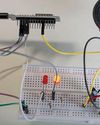
ESP32-Powered AUDIO-VISUAL SIREN
This sound alternator is designed to simulate the effects of a police siren, combining sound and light to create a dynamic audio-visual experience.
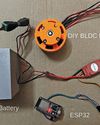
BLDC MOTOR With Web-Based Speed Control Using ESP32
Integrating wireless control into brushless direct current (BLDC) motor systems opens up exciting possibilities for applications such as remote-controlled cars, robots, and other innovative systems.
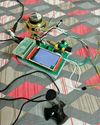
Pi Zero Portable BILINGUAL TRANSLATOR
This system is designed as a bilingual translator, leveraging the gTTS library to support multiple Indian languages, including English (en), Bengali (bn), Gujarati (gu), Hindi (hi), Kannada (kn), Malayalam (ml), Marathi (mr), Tamil (ta), Telugu (te), and Urdu (ur).
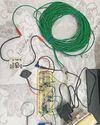
Op-Amp-Based VEHICLE THEFT DETECTOR
A simple, low-cost device can effectively alert homeowners or occupants if a parked vehicle is moved or tampered with.
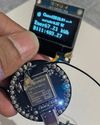
loT SMART METER With Dashboard
Energy meters in homes track electricity usage, enabling accurate billing by governments and providers.

Choose The Right Cloud Platform For Implementing loT PROTOCOLS
Working with loT protocols like MQTT, AMQP, and CoAP on cloud platforms is essential for developing scalable and efficient lol applications. The choice of the programming platform will depend on factors like project requirements, existing skills, and target devices. Leveraging the appropriate libraries and cloud services can enable seamless integration of lol devices with cloud-based applications.

Why TMR SENSORS Lead Next-Generation Design
TMR sensors are gaining traction in industries needing precision and power efficiency. What makes them the go-to choice for modern designs?
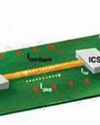
DESIGNING PCBs For EMI Management
Electromagnetic interference can derail your PCB’s performance. EMI management is not just a technical necessity but a hallmark of exceptional PCB design.

CUTTING COSTS, NOT CORNERS: Building Large Scale Applications With Open Source Software
Here are some strategies and best practices for leveraging open source to create enterprise-grade web and mobile applications without sacrificing quality or functionality.

"We Are One Of India's Very Few State Bodies To Manage The Entire Lifecycle Of The Electronics EcosystemFrom Approvals To Subsidies."
What is Gujarat State Electronics Mission GSEM), and how is it attracting major investments in electronics manufacturing, particularly semiconductor manufacturing, to Gujarat? To delve deeper, Electronics For You’s Nijhum Rudra spoke with Manish Gurwani, the head of GSEM. Here is what he revealed...